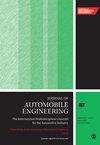利用非 IID 数据进行车辆轨迹预测的场景感知聚类联合学习
IF 1.5
4区 工程技术
Q3 ENGINEERING, MECHANICAL
Proceedings of the Institution of Mechanical Engineers Part D-Journal of Automobile Engineering
Pub Date : 2024-09-17
DOI:10.1177/09544070241272761
引用次数: 0
摘要
近年来,联合学习(FL)在车辆轨迹预测(VTP)领域备受关注,因为它可以解决数据不足、数据隐私和训练效率等关键问题。然而,与集中式训练相比,FL 训练出的模型可能会存在预测性能不足的问题。这一重要问题源于参与客户端(即非 IID)本地数据的统计异质性分布。因此,本文为 VTP 模型引入了集群联合学习(CFL)方法,以减轻非 IID 数据的影响。所提出的方法包括联合轨迹聚类和联合 VTP 模型训练。在联合轨迹聚类中,使用联合 K 均值聚类生成最佳轨迹场景判别器,而无需直接访问私人数据。在联合 VTP 模型训练中,针对特定轨迹场景训练多个 VTP 模型,以应对非 IID 数据的影响。实验结果表明,在 NGSIM 和 HighD 数据集上,我们的方法优于最先进的 FL 方法,收敛速度提高了 13.82%,RMSE 降低了 12.47%。本文章由计算机程序翻译,如有差异,请以英文原文为准。
Scenario-aware clustered federated learning for vehicle trajectory prediction with non-IID data
In recent years, Federated Learning (FL) has attracted much attention in Vehicle Trajectory Prediction (VTP) as it can resolve the critical issues of insufficient data, data privacy, and training efficiency. However, compared with centralized training, the model trained by FL may have insufficient prediction performance. This important issue comes from a statistical heterogeneity distribution of the local data in the participating clients, that is, non-IID. Therefore, this paper introduces a Clustered Federated Learning (CFL) approach for the VTP model to mitigate the influence of non-IID data. The proposed approach consists of federated trajectory clustering and federated VTP model training. In federated trajectory clustering, the optimal trajectory scenario discriminator is produced using federated K-means clustering without direct access to private data. In the federated VTP model training, multiple VTP models for specific trajectory scenarios are trained to deal with the influence of non-IID data. Experimental results reveal that our approach outperforms the state-of-the-art FL method on both NGSIM and HighD datasets, achieving up to 13.82% convergence acceleration and 12.47% RMSE reduction.
求助全文
通过发布文献求助,成功后即可免费获取论文全文。
去求助
来源期刊

CiteScore
4.40
自引率
17.60%
发文量
263
审稿时长
3.5 months
期刊介绍:
The Journal of Automobile Engineering is an established, high quality multi-disciplinary journal which publishes the very best peer-reviewed science and engineering in the field.
 求助内容:
求助内容: 应助结果提醒方式:
应助结果提醒方式:


